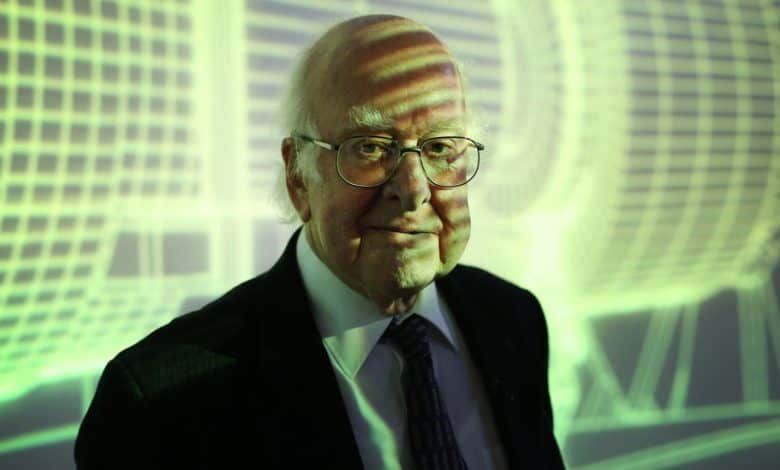Peter Higgs, Nobelist Who Discovered the ‘God Particle,’ Dies at 94

Peter Higgs, who predicted the existence of a new particle that came to be named after him (as well as God) and sparked a half-century, worldwide, billion-dollar search for it culminating in champagne in 2012 and a Nobel Prize a year later, died on Monday. He was 94.
His death was announced by the University of Edinburgh, where he was an emeritus professor. No further details were provided.
Dr. Higgs was a 35-year-old assistant professor at the university in 1964 when he suggested the existence of a new particle that would explain how other particles acquire mass. The Higgs boson, also known as “the God particle,” would become the keystone of a suite of theories known as the Standard Model, which encapsulated all human knowledge so far about elementary particles and the forces by which they shaped nature and the universe.
Dr. Higgs was a modest man who eschewed the trappings of fame and preferred the outdoors. He didn’t own a television or use email or a cellphone. For years he relied on a colleague Alan Walker, a physics professor at Edinburgh, to act as his “digital seeing-eye dog,” in the words of a former student.
A half-century later, on July 4, 2012, he received a standing ovation as he walked into a lecture hall at the European Organization for Nuclear Research, or CERN, in Geneva and heard that his particle had finally been found. On a webcast from the laboratory, the whole world watched him pull out a handkerchief and wipe away a tear.
“It’s really an incredible thing that it’s happened in my lifetime,” he said on the webcast.
Declining to stick around for the after-parties, Dr. Higgs flew right back home, celebrating on the plane with a can of London Pride beer. CERN, which has shelves of empty Champagne bottles commemorating great moments lining its control room, asked if it could have the can, but Dr. Higgs had already thrown it away.
A full obituary will follow.
